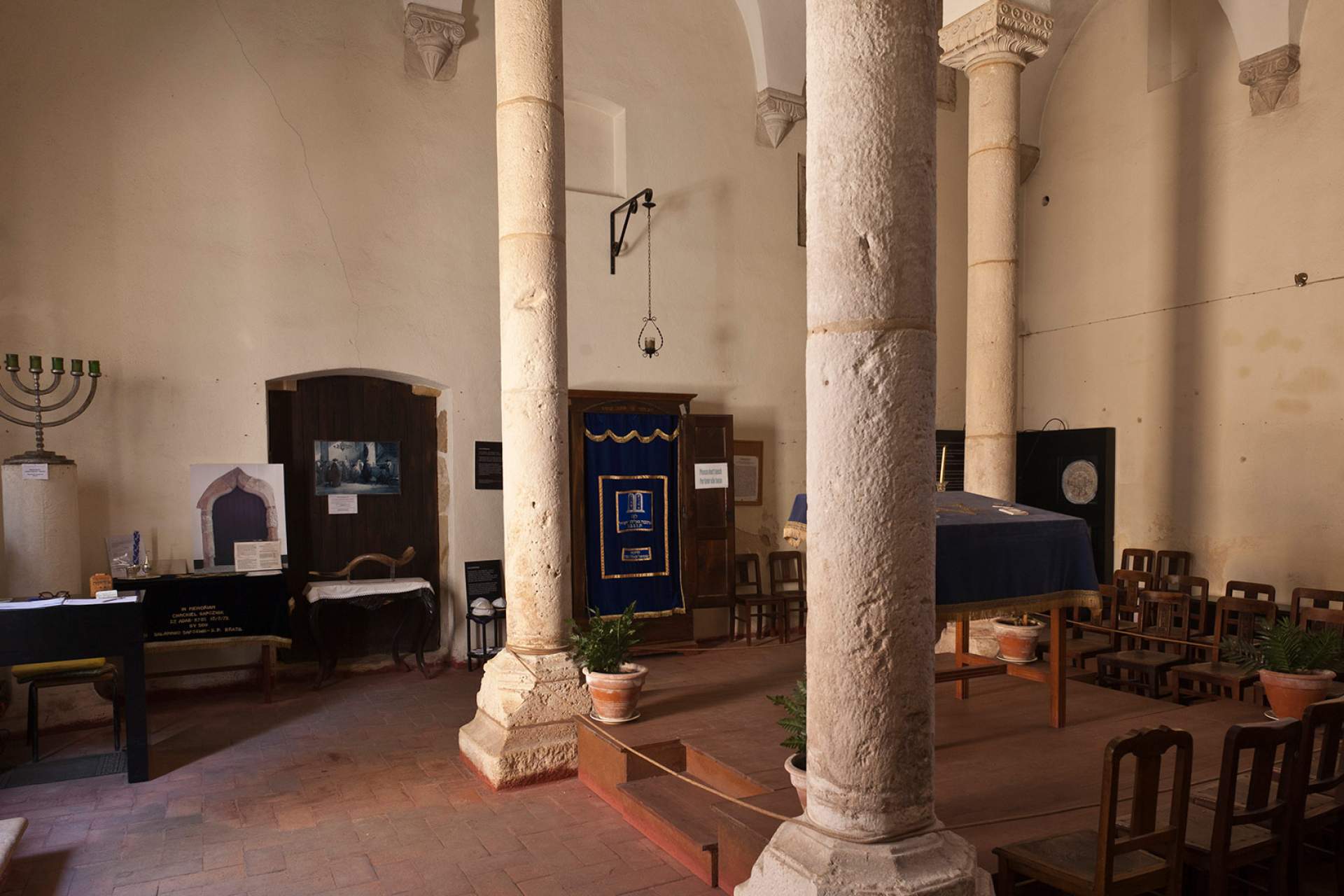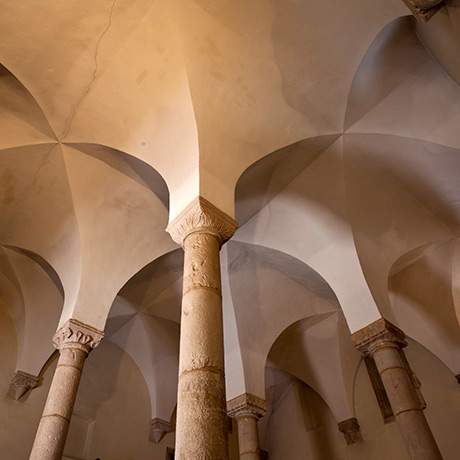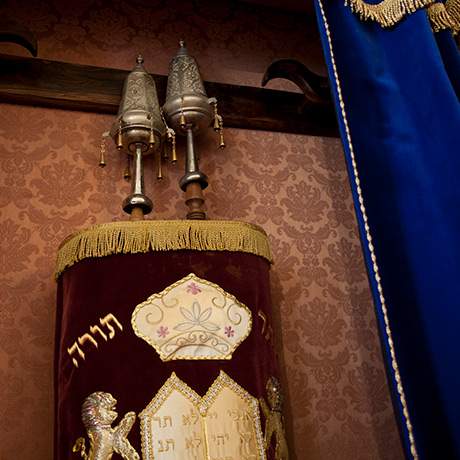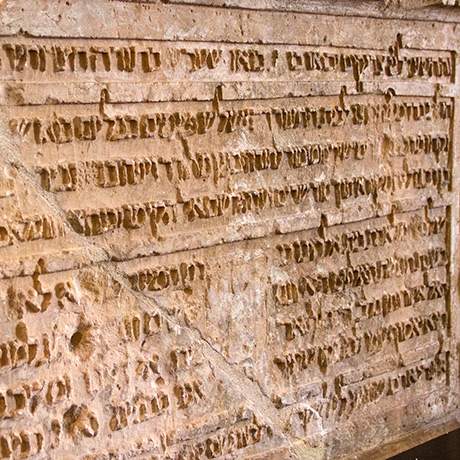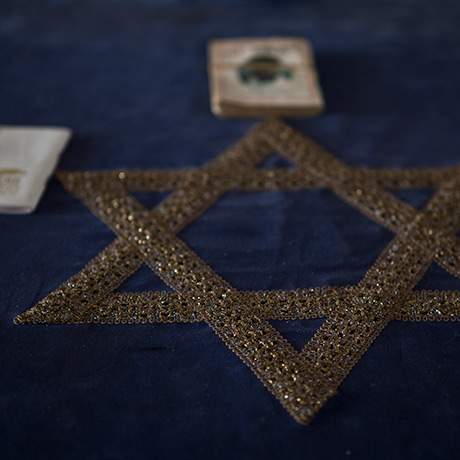
Tomar Synagogue | Abraão Zacuto Luso-Hebraic Museum
The only Jewish temple of the 15th century in Portugal.
The Synagogue of Tomar is the only Jewish religious building that has remained intact, almost unchanged and fully maintained, since the mid-15th century, when it was built, until today. It is a Renaissance building and was built in the period of close proximity of the Jewish community of Tomar to Henry the Navigator (1394-1460), when the city grew in population and wealth.
With a very discreet façade and a quadrangular structure, the interior is full of symbolism: four columns, each with capitals decorated with geometric and vegetal motifs, representing the Matriarchs of Israel, support the roof: Sarah, Rachel, Rebekah and Leah. The columns are linked to twelve arches, symbolizing the twelve tribes of Israel.
The acoustic amplification technique used is also unique, and still preserved: each upper corner has two holes corresponding to the eight clay amphorae nozzles placed upside down on the masonry, creating the sound amplification of ritual chants. Recently, after archaeological excavations, a room next to the synagogue was found designed for mikveh, a ritual cleansing bath for women.
However, the existence of this building with the use of the synagogue would be short-lived, as the Jewish quarter and the synagogue closed in 1496 with the forced conversion of Jews to Christianity.
The Synagogue was used for various purposes over the centuries. Samuel Schwarz (1880-1953), a Portuguese Jew of Polish origin, discovered it and soon became a National Monument (1921). Schwarz acquired the building in 1923 and created a museum with his collection of tombstones and Hebrew inscriptions collected across the country, which he called Abraão Zacuto Luso-Hebraic Museum. The building was donated to the Portuguese State in 1939.
Address:
Rua Dr. Joaquim Jacinto, 73, 2300-577 Tomar
Phone:
Email:
Timetable:
1 October to 31 March 10.00 - 12.00 and 14.00 - 17.00; 1 April to 30 September 10.00 - 13.00 and 14.00 - 18.00
Closing day(s):
1 May and 25 December.
Close
Search results for:
No results were found matching your search.
Information available soon.


